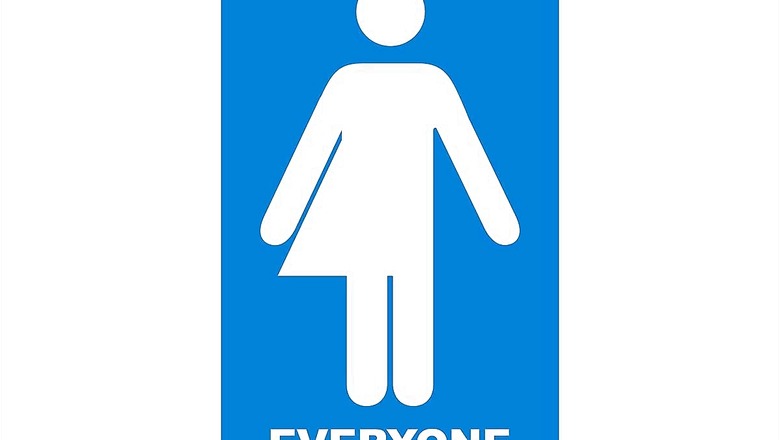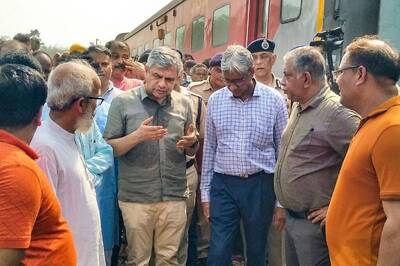
views
The tourism and hospitality industry, a cornerstone of India’s economy, is witnessing an evolution in customer preferences and values. In FY20, 39 million jobs were created in the tourism sector in India, which was 8.0% of the total employment in the country. India is ranked 10th among 185 countries in terms of travel & tourism’s total contribution to GDP – in 2019, that number was US$ 194.30 billion and is expected to reach US$ 512 billion by 2028.
That’s 10% of the US$5 Trillion economy we are hoping to achieve.
With a diverse global clientele, creating an inclusive environment has become a strategic investment. No matter how beautiful or scenic or exciting a country is, if it is perceived as ‘unsafe’, you aren’t going to plan a holiday there. LGBTQ+ travellers face various challenges and barriers when travelling to different destinations. These include legal restrictions, social stigma, discrimination, harassment and violence.
They’re not a small group. LGBTQ+ travellers represent an estimated 10% of the global tourism market, with an estimated global spending power of $3.9 trillion.
One of the ways to attract and retain LGBTQ+ travellers is to invest in inclusive tourism and hospitality infrastructure, which refers to the physical and intangible facilities and services that enable tourists to access and enjoy a destination. This includes transportation, accommodation, attractions, entertainment, information, communication and… toilets.
The Need for Inclusive Toilets
When a person who is transgender, intersex or non-binary has to go to a gender segregated toilet, it opens up a world of trouble for them. You see, for these individuals who don’t identify as ‘male’ or ‘female’, asking them to use either toilet is like asking someone to go to the ‘wrong’ toilet. There are some real risks here. Transgender individuals are more likely to be victims of violence in bathrooms. In a survey from the National Center for Transgender Equality, where 27,715 people were surveyed, the results found that approximately 12% of transgender people were verbally harassed in public restrooms, 1% were physically attacked, and 1% were sexually assaulted.
For most people who identify as transgender, non-binary and intersex, segregated toilets can be stressful places. They never know when someone is going to challenge their presence in that toilet, and ask them to use the other one. They don’t know if they are going to be called out, humiliated, thrown out of the premises, or even verbally and physically attacked.
Transgender, non-binary and intersex people don’t want to use the ‘wrong’ toilet anymore than men or women do. No woman goes to a men’s toilet if a women’s toilet is around. But if there are no gender inclusive toilets, where do we expect people who are transgender, non-binary and intersex to go?
Inclusive tourism and hospitality infrastructure for LGBTQ+ travellers means providing them with a safe, comfortable and respectful environment where they can be who they are, without fear or judgement. It means offering them products and services that cater to their interests and expectations. We can build LGBTQ+ friendly hotels, bars and restaurants; host LGBTQ+ friendly events and tours, but if we ask our friends from the community to go to the dangerous toilets, we’re hamstringing our own efforts. Without inclusive toilets, it doesn’t work.
Creating LGBTQ+ Friendly Infrastructure
For LGBTQ+ travellers to feel safe and welcome in India, there are a few boxes we need to check:
Legal Framework
In India, we’ve made significant strides in recognising and legitimising the rights of the LGBTQ+ community. In 2014, the Supreme Court of India recognized transgender persons as a third gender, setting the foundation for subsequent policies. This recognition has spurred dialogue around gender inclusivity in public spaces, including toilets. In 2018, after 17 years of advocacy and litigation, the Supreme Court also decriminalised homosexuality by repealing Article 377, a colonial era law that had carried over into India’s constitution.
The Supreme Court is currently hearing petitions seeking legal recognition of homosexual couples. A favourable decision here would make India the first country (and the second place) in Asia to allow marriage equality.
Changing the cultural lens
In addition to heavy consumption of international content, Indian films and TV productions are beginning to represent LGBTQ+ characters, themes and storylines. The development isn’t a recent one – Deepa Mehta’s Fire, explored the relationship between two women in a conservative Indian family system, all the way back in 1996. Since then, we have had My Brother Nikhil (2005), Honeymoon Travels Pvt Ltd (2007), Dostana (2008), Aligarh (2016) and Ek Ladki Ko Dekha To Aisa Laga (2019) and the very successful Badhai Do (2022) – all movies that navigated the specific challenges that the LGBTQ+ community has to navigate in a society that still has a long way to go to true acceptance.
At home, Amazon Prime’s Made In Heaven (2019) gave us a nuanced understanding of the challenges faced by the LGBTQ+ community, in an India where Article 377 was the law.
Mumbai, Bangalore, Chennai, Calcutta and Delhi each have their own Queer Film and Theatre Festivals, in addition to pride parades. In fact, here’s a list of all the cities that host their own pride parades: Bhubaneswar, Hyderabad, Chandigarh, Pune, Ahmedabad, Thrissur, Madurai, Bhawanipatna, Guwahati, Cochin, Jaipur, Dehradun, Surat, Baroda, Thiruvananthapuram, Nagpur, Lucknow, Bhopal, Jamshedpur, Goa, Amritsar, and many, many others.
Also, the list of celebrity influencers who are from the community and those who are allies is endless. In the fight for recognition, acceptance and equality, India’s LGBTQ+ community is rich in well connected, well spoken allies and representatives.
LGBTQ+ owned and welcoming hospitality businesses:
There are several hospitality businesses in India that are owned by or cater to LGBTQ+ travellers. These include hotels, cafes, bars, restaurants, nightclubs and events that offer a safe and comfortable space for LGBTQ+ people to socialise, network and have fun. Some of these are Le Flamington in Pune, a charming Parisian-style cafe founded by a gay couple; People’s Choice Cafe in Hyderabad, the first-ever LGBTQ+ friendly cafe in the city; Kitty Su in Delhi and Mumbai, one of India’s hippest nightclubs as well as an inclusive queer-friendly space; The Lalit Hotels, a chain of luxury hotels that hosts regular LGBTQ+ events and parties; and Pink Vibgyor, a travel company that organises customised tours and packages for LGBTQ+ travellers across India.
Inclusive toilet facilities:
The policy support is there, the implementation is yet to catch up. However, there are several shining examples that are setting just the right tone. India’s Supreme Court recently set us a new benchmark of inclusivity by setting up nine gender-neutral bathrooms within the corridors of the court itself.
In Delhi, the government has taken a significant step towards inclusivity by mandating that all its departments, offices, district authorities, municipal corporations, state-run companies, and the Delhi Police have separate and exclusive washrooms for transgender persons. This order not only facilitates the establishment of transgender toilets but also states that transgender individuals shall continue to have the option to use gender-based toilets corresponding to their self-identified gender.
There are inspiring examples of educational institutions taking proactive steps. One notable case is the Indian Institute of Technology (IIT) Bombay, where gender-neutral restrooms were installed on campus as early as 2017. This initiative was championed by Saathi, an LGBTQ+ student support group at IIT Bombay, showcasing the power of student-led advocacy in fostering inclusivity.
Another institution leading the way is the Tata Institute of Social Sciences (TISS) Mumbai, which also introduced gender-neutral restrooms on its campus in 2017. The effort was spearheaded by Queer Collective, an LGBTQ+ student group at TISS Mumbai, emphasising the importance of student-driven initiatives in creating safe and inclusive spaces for all.
Today, several Indian universities are recognizing the need for gender-neutral toilets. Institutions such as IIT Delhi have taken the initiative to inaugurate gender-neutral washrooms on their campuses. In fact, IIT Delhi now boasts 14 such facilities. Additionally, Tezpur University in Assam and the National Academy of Legal Studies and Research (NALSAR) in Andhra Pradesh have also embraced gender-neutral washrooms, recognizing the importance of providing an inclusive environment for all students. NALSAR goes a step further by adopting a gender-neutral trans policy and the recognition of a gender-neutral title, “Mx,” on student’s certificates, paving the way for other institutions to follow.
Corporate Allies
Harpic, a brand renowned for its commitment to cleanliness, has embraced this call for change. With open hearts and a deep understanding, Harpic has taken remarkable strides to ensure that its products cater to the rich tapestry of society, which includes the LGBTQ+ community. Recognizing that education is the key to transforming attitudes, Harpic has launched inspiring campaigns that illuminate the beautiful diversity of gender identities. Through these powerful initiatives, society is awakened, nurtured, and encouraged to create environments where acceptance thrives.
One initiative that aims to address this issue is Mission Swacchta aur Paani, a campaign launched by Harpic India in partnership with News 18, 3 years ago. Harpic, a brand renowned for its commitment to cleanliness, has embraced this call for change. With open hearts and a deep understanding, Harpic has taken remarkable strides to ensure that its products cater to all, which includes the LGBTQ+ community. Recognizing that education is the key to transforming attitudes, Harpic has launched inspiring campaigns that illuminate the beautiful diversity of gender identities. Through these powerful initiatives, society is awakened, nurtured, and encouraged to create environments where acceptance thrives.
By advocating for inclusive toilet facilities, Harpic not only supports the health and well-being of millions of Indians, but also contributes to the development of LGBTQ+ friendly tourism and hospitality infrastructure in India. This in turn can help attract more LGBTQ+ travellers to India, boost their spending and satisfaction, and create positive social impacts for the host communities.
Conclusion
According to a report by the UN World Tourism Organization and IGLTA, LGBTQ+ friendly tourism and hospitality infrastructure can help destinations attract more visitors, increase their spending, extend their length of stay, improve their loyalty and enhance their word-of-mouth promotion.
In India, where we are making great strides at improving so many aspects of the tourist experience, gender inclusive toilets are a low hanging fruit. The earlier we move on this, the faster the rest of our efforts will translate into true LGBTQ+ friendliness. Gender inclusive toilets are seen as concrete proof of our commitment to inclusivity. It is another stroke that erases cultural and societal biases that hurt many amongst us, and takes us one step closer to creating a society where all of us are safe, accepted and respected.
Join us here, to learn how you can play a part in this national transformation.


















Comments
0 comment